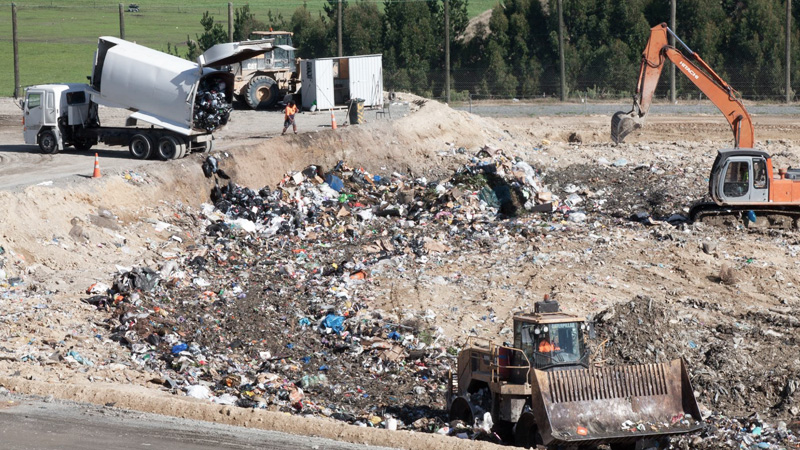Increasing the waste levy – cut waste and create jobs
Increasing the waste levy will significantly reduce the high volume of waste being sent to landfill and help create jobs.
The report “A Wasted Opportunity” released today by the New Zealand Waste Levy Action Group recommends broadening and raising the levy charged on all waste sent to landfill. Currently $10 per tonne, the levy is well below that of other countries charging a similar levy.
Adele Rose, 3R Group Chief Executive, believes New Zealand’s low rates of resource recovery and product stewardship have a direct correlation to the levy. “The low value placed on our waste provides little or no incentive for businesses or consumers to change their behaviour and seek out more positive outcomes for their ‘rubbish’.
Mrs Rose believes landfill should be the last option, not the default. She says that too often, highly recyclable products are put in the ‘too hard basket’ and dumped as alternatives simply aren’t available.
“Higher disposal costs for waste will increase the push back from consumers onto industry which in turn makes product stewardship more appealing to industry.
“Current product stewardship programmes operating in New Zealand can demonstrate significant increases in recovery rates, but they also provide an excellent mechanism to encourage manufacturers to design products that have longer life spans, that can be repaired rather than replaced, and to increase the recyclability of materials. All of which appeals to consumers and is kinder on our planet.
“If landfill is cheap and convenient, then where are the drivers for change?”
Rose believes that while consumers are exerting more pressure on business to step up, change needs to be supported at multiple levels and in a variety of ways, with one of these key levers being the waste levy.
“Experience here and abroad shows that recovering the resources otherwise wasted in landfill, creates new jobs and supports local industry and social enterprise. This report states that raising and expanding the levy can deliver $500 million in net benefit to the economy every year and create up to 9,000 new jobs.
“Obviously, it’s critical that any change is clearly signalled allowing businesses, industry and government time to plan and adapt, as suggested in the report,” says Rose.
“We hope the government will see that this recommendation will bring about multiple benefits that closely align with their own policies of creating jobs, reducing waste to landfill, and supporting the tourism and primary industries who rely on our clean green image.”
About the Report: “A Wasted Opportunity”
The report proposes a number of changes to the Waste Disposal Levy. This study sought to determine how the levy could be better structured, and what the impacts might be. The report, completed by Eunomia, was funded by a consortium of public and private sector organisations.
It suggests that key changes to the Waste Disposal Levy could, by 2025:
- Divert 3 million tonnes of waste from landfill per annum;
- Create up to 9,000 jobs;
- Deliver $500 million in a net benefit to the New Zealand economy per annum.







